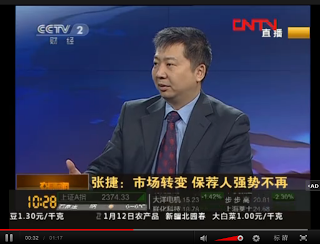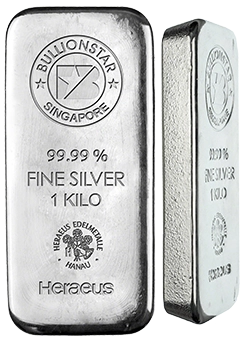Gold Leasing Is A Tool For The Global Credit Game
Below a translation of an article on gold price suppression by global finance expert Zhang Jie, published on April 15, 2013. We have posted a Google Translate version of this article on August 13, but because of the significance of the insights of the writer we searched for real translators to make it into a more clear and understandable read. The result is a very interesting analysis of a monetary game played by the US and other countries through gold leasing and derivatives.
We will be publishing translations from Chinese economists on a more frequently basis as these gives us important information on China’s present and future gold policy.
Translated by Maarten van Mourik and J. Chin.
Gold Leasing Is A Tool For The Global Credit Game
– By Zhang Jie, Deputy editor of “Global Finance"
The world’s financial and real estate crisis will eventually produce a credit crisis. The price of gold is closely related with credit, the implication from suppression the gold price lies not only on gold, but more so in currencies and the trust behind currencies. Gold leasing is an important innovation in the gold settlement system. Through continuous gold leasing the gold in the market can be circulated and produce derivatives, creating more and more paper gold. This is very significant for the United States. Gold leasing is a major tool for the Federal Reserve and other central banks in the West to secretly control and regulate the gold market, creating gold credit derivatives and global credit conflict.
China suffered from gold lease in the past
World gold leasing started in the 1980s, when the gold price rose to over 800 US$ per ounce. Gold leasing at that time effectively combated the price of gold. More strategically, the gold price affected national creditworthiness. A lower gold price suppressed the Soviet Union and China after 1989 when they were sanctioned by the West, in addition to the sanctions imposed on South Africa for apartheid. As all three were heavily dependent on gold to import necessities, the gold price had become a protection for foreign credit in these countries.
In the 1990s, the introduction of gold leasing effectively lowered the price of gold. Low gold and oil prices have caused great difficulties for China, the former Soviet Union and South Africa who were in dire need of foreign currencies. As a result, these countries had to sell resources or core assets very cheaply, which now have to be bought back more expensively. The West thus gained extensively by suppressing gold prices.
Gold credit is even more critical in today’s world where risk of global crises, war and conflicts increases. If a global full-scale conflict were to develop, the globalized financial system would collapse and trust in national currencies would vanish completely. Only liquid assets, of which the best liquid asset is gold, can establish trust between nations. Consequently, the trust in gold will become critical; gold can become a powerful weapon in the world credit game. Crude oil and other commodities that are difficult to store can’t be used as trust equivalents. Gold being the leading candidate is inevitable, thus led to gold leasing becoming the tool and mean of the world credit game.
Gold leasing to control credit
If the Fed were to engage in gold leasing, the lessee is the key in this process. In the bull market during the past several years, gold leasing agencies which shorted gold may incurred huge losses. Although these losses exist, we don’t see them because it’s possible for entities such as Lehman Brothers to manipulate their accounts. However, it is unlikely for the Fed to be involved directly in the shorting of gold reserves and manipulation of accounts, but it is entirely possible for the Fed to engage in gold leasing on a huge scale, and the related lessee could thus bear a huge loss. If the loss is exposed, even a large institution could collapse. This could create a crisis as bad as the one caused by the collapse of Lehman Brothers. Germany and the IMF should see the signs of such a crisis that would have a serious impact on the creditworthiness of countries and agencies.
The purpose of gold leasing is not just to receive a rent, but it also provides the ability to short-sell gold, which allows central banks to interfere in the currency market. As a result of central banks printing more money, the EU insists on a stable currency mechanism, the United States launched QE3 and QE4, and Japan is expanding its supply of money. These countries can continue to print more money as long as they can keep their commodity prices stable to ensure the trust in their currency, and therefore effectively suppress inflation panic. Whoever can persist to the end, persevering until all other money-printing countries have collapsed, is the winner.
Gold and crude oil are the two main iconic commodities which measure the trust of a particular foreign currency. The United States has effectively controlled the oil price through the adaptation of the concept of shale oil and gas as well as through the control of the Middle East. Europe has taken control of the Libyan oil supply through the war on Libya. The advantage of Germany is that the oil is being supplied to East Germany by Russia which results in a controlled oil price. The next step is to control the gold price. Due to the recognition of gold to possess monetary value throughout history and the fact that it is easy to store, the metal has the natural and historical advantage over crude oil.
If one wants to control gold, it is a necessity to have the ability to short-sell the same. A central bank that directly suppresses gold would be suspected as a market manipulator. However, gold leasing by the central bank can take place unnoticed. During a financial crisis gold would have more monetary power as well as a greater trust significance. Countries need to control the trust in their national currencies and thus suppress the actual market price of gold, which will affect the exchange rates and other aspects. Each country carries out its attack on the price of gold according to the method of its own national currency. Germany is the Euro leader, shipping back its gold reserves in a sense relates to the fate of Germany and the Euro. If there is a crisis in the market, as long as the Central Bank in Frankfurt is able to effectively go short on gold, this crisis can be mitigated. Otherwise, people will want to hold gold as a hedge. This is why Greece, during the current financial crisis, is firmly holding on to its gold.
Germany staged a coup on the US Fed
 If the Fed’s large gold reserves are used in gold leasing, there will be a serious problem. Germany therefore will threaten the Fed’s dominant position by demanding their gold back; the Fed subsequently needs to withdraw the leased gold and thus could destabilize the market. This is a new credit game of international capital.
If the Fed’s large gold reserves are used in gold leasing, there will be a serious problem. Germany therefore will threaten the Fed’s dominant position by demanding their gold back; the Fed subsequently needs to withdraw the leased gold and thus could destabilize the market. This is a new credit game of international capital.
If the Fed is engaged in gold leasing it’s impossible that the Fed is able to show Germany and France their stored gold because the gold has been used in gold leasing. The Fed should be able to combine the remaining gold deposits from all remaining countries to allow for Germany’s inspection – Germany has no right to audit gold reserves of other countries. The Fed probably has agendas aimed at preventing Germany to inspect its gold or to ship it back to Germany. These agendas are likely to be related to the game of international finance and the credit game between countries. Gold is a financial and monetary product; it represents the authority of the Fed. If Germany would be suspicious of the United States and request an inspection, and if the Fed would permit such an inspection, other countries may well ask for the same. As a consequence, however, the US would no longer possess the authority and lose their dominant position as world finance leader.
The aim of Germany’s action is to have gold holdings and the right of gold leasing. In the situation where gold can be leased, there is a big difference between holding paper gold and physical gold. For countries with their gold reserves at the Fed, even if the Fed agrees to let them lease gold and the Fed had not leased out their gold, they require to disclose valuable information to the Fed on their intention to short gold when they do. Not only will be it inefficient as you cannot proceed with shorting gold immediately because the Fed needs to process your request first, but you also need to consider the US’ attitude to shortening at this particular point. In the meantime, the Fed gains the opportunity to hedge against your plan, especially when the Euro and the Dollar are in competition. It can be very uncomfortable if American financial interests rule over your lifeblood. Not to mention having the right to choose to whom to lease gold, has derived benefits for the Fed. Therefore, Germany urgently needs to take the initiative in the financial market and ship back its gold from the Fed. This is a means to restrict the possibility of gold leasing by the Fed. A so-called security concern is more of an excuse rather than a real problem.
As Germany plans to ship back its gold reserve from France, the competitive relationship between Germany and France is very important. Germany wants to dominate the gold-euro pricing; therefore it becomes proactive in the credit game among European countries. If the Euro-gold price is reasonable, the trust in the euro can be secured, the EU can continue to ease when necessary, get rid of the burden of the PIGGS, and compete with the trust in the dollar. If a credit crisis occurs, the key factor is who holds the gold. Gold settlement is considered as a replacement of the foreign exchange settlement. Since the Euro started, foreign currency reserves of each country are very small, however, each country holds gold. When a Euro crisis occurs, and if the gold reserves are with the Fed, the Fed has the decisive right over Europe. This is not what Europe wants.
For the Fed, it is crucial that the dollar dominates the world and so the Fed will store gold reserves from countries all over the world to control the gold settlement system. If there were another gold settlement system, it would compete with the dollar’s trust. Natural gold credit would be a nightmare for the continuous printed dollar. The dollar can only be the world currency as a result of the United States controlling global gold settlement. However, if other countries want their gold back from the Fed, the Fed will lose its gold settlement position. Underneath the global gold reserves at the Fed, there is the promise of the United States to continue with the dollar-gold price under the Bretton Woods system. Since the collapse of the Bretton Woods system 30 years ago, it is suspected that the United States violated the original agreement; therefore other countries have the right to demand their gold reserves back from the Fed.
The behavior of Germany demanding to ship back its gold reserves from the Fed is to challenge the Fed’s dominance of the gold price settlement. To take the lead in the challenge, Germany must have been backed by a series of beliefs not just solely for the shipment of gold. During the Euro crisis, the EU set up its own gold settlement system as a substitute and temporary solution. Don’t forget that Germany insists on a tightening monetary policy. If Germany holds its own gold reserves, this will restrict other countries to lease gold. Such action could create a panic over gold, subsequently support gold prices and blow the confidence of gold short sellers. This will have significantly more impact on the market’s confidence than actual market transactions. At a time when the market is concerned about the US Fed having a huge gold deficit, who dares to short gold on a massive scale? Here we should see the divergence between United States and Europe as well as with Germany.
This translation is a combination of two translations, by Maarten van Mourik and J. Chin, which were merged by Koos Jansen. This link (choose file, than download) gives access to a document that contains the Chinese text as well as the two original translations by Mourik and Chin.
Popular Blog Posts by Koos Jansen
 China’s Secret Gold Supplier is Singapore
China’s Secret Gold Supplier is Singapore
 Audits of U.S. Monetary Gold Severely Lack Credibility
Audits of U.S. Monetary Gold Severely Lack Credibility
 China Gold Import Jan-Sep 797t. Who’s Supplying?
China Gold Import Jan-Sep 797t. Who’s Supplying?
 The Gold-Backed-Oil-Yuan Futures Contract Myth
The Gold-Backed-Oil-Yuan Futures Contract Myth
 Estimated Chinese Gold Reserves Surpass 20,000t
Estimated Chinese Gold Reserves Surpass 20,000t
 Did the Dutch Central Bank Lie About Its Gold Bar List?
Did the Dutch Central Bank Lie About Its Gold Bar List?
 PBOC Gold Purchases: Separating Facts from Speculation
PBOC Gold Purchases: Separating Facts from Speculation
 U.S. Mint Releases New Fort Knox Audit Documentation
U.S. Mint Releases New Fort Knox Audit Documentation
 China Net Imported 1,300t of Gold in 2016
China Net Imported 1,300t of Gold in 2016
 Why SGE Withdrawals Equal Chinese Gold Demand and Why Not
Why SGE Withdrawals Equal Chinese Gold Demand and Why Not






 Koos Jansen
Koos Jansen











